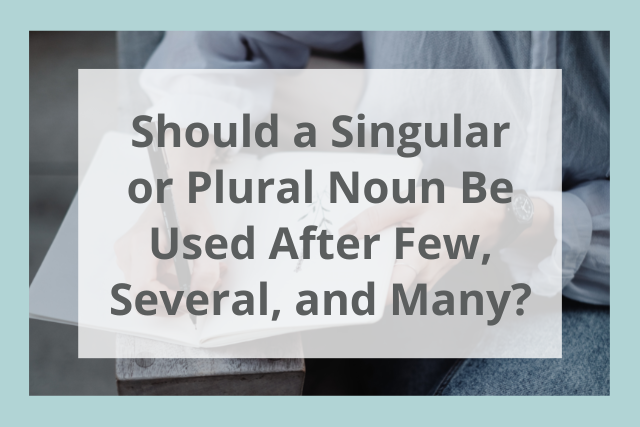
Few, several, and many are determiners that help clarify numbers or amounts of various nouns. It’s important that the nouns following these words are plural for agreement.
- Several dogs were adopted over the weekend. (Dogs is plural.)
- The performer had many talents. (Talents is plural.)
Because these words deal with amounts, it’s easy to make agreement errors in writing. The nouns that follow the determiners few, several, and many must be plural, and any related verbs must be in the plural form.
Few Definition
Few means that there are more than one or two items but not many. It refers to specific, countable nouns. As a determiner, few must precede a plural noun because it always refers to more than one noun.
- Few people ever get into Ivy League schools.
- She has a few pets.
- The book got really exciting in the last few pages.
- The chocolates are delicious; I’ll take a few more.
Several
Several means that there are more than two or three but still not many. It has a similar definition to few, but the amounts are relative depending on the situation. It must be followed by a plural noun.
- I have several assignments due this week.
- There are several types of ice cream to choose from.
- My boyfriend gave me several gifts for Christmas.
- There are several things I’d like to discuss in our meeting.
Many Definition
Many means a lot, or more than several. This amount is relative based on the situation. Like the others, it must precede a plural noun.
- There are many different ornaments on the tree.
- Did you invite many people to your wedding?
- We have many grievances with the landlord.
- I have too many students in my class this year.
